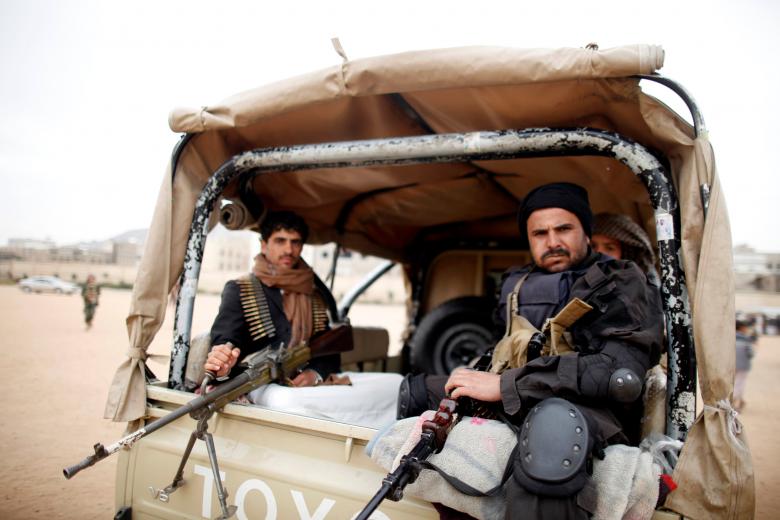Aden – Disregarding human rights and violating international law, putschists in Yemen have reportedly been running 480 undisclosed prison facilities in provinces under their control.
Most Yemenis detained haphazardly and forcibly are being concealed in such coup-run locations, reported the Saudi Press Agency SPA.
According to a recent report released by the National Committee for Human Rights in Yemen, prisoners of such facilities are being subjected to brutal torture, with accounts of torture to death being registered. Fire involved torture methods are also presumably being exercised by Houthi militiamen against detainees.
The Iran-aligned militia had appropriated several government premises and civil buildings and transformed them into coup-run prisons, the report stated.
Some 227 government buildings, 27 medical institutions, 49 universities, 99 schools, 25 sports clubs, 47 judicial buildings and 10 houses have been made into secret prisons, the reported added.
According to the report, at least 16,804 cases of arbitrary arrests and systematic torture were carried out against civilians by the Houthi militias and armed loyalists backing ousted president Ali Abdullah Saleh.
A number of international organizations, including Amnesty International, have cited in their reports cases of illicit and arbitrary arrests carried out by the militias against Yemenis.
When visiting former prisoners held in coup-run prisons, National Human Rights Committee teams said that they suffered from poor mental and physical health conditions as a result of the brutal torture they had encountered. In some cases, the prisoners cited having undergone near-death experiences.
Released prisoners said putschists forced them to confess to crimes they had not committed.
Houthi militias kept torture and detention facilities under tight monitoring and security. Visitations were not allowed and access was restricted only to prison guards.
Insurgency militias have also been reserved on disclosing the identities of prison personnel and wardens. Prison communication sees extensive use of aliases in order to prevent future spill out of the identities of those involved in running the illegal sites.
Houthis forced almost all released prisoners to sign concessions and pledges, which would inhibit them from engaging in any political, rights, global or social activity or anti-coup sentiment after their release.
Should the detainees violate the conditions they signed, coup militiamen will then be entitled to kill them or their family or confiscate all their properties and assets.
More so, insurgency militias have also been held responsible for abducting children without informing their parents or relatives, recruiting and deploying them to battlefronts to fight among coup ranks.
Arab Coalition forces backing the internationally-recognized government in Yemen, reported handing over 52 insurgency-recruited child soldiers to a number of international organizations, such as the Red Cross and UNICEF.
Iran-aligned Houthi militants and armed loyalists backing ousted president Saleh have been orchestrating a coup in Yemen seeking to overthrow the constitutionally elected government led by President Abdrabbuh Mansur Hadi.
The insurgency has cost Yemen heavily, where at least 2.5 million people were internally displaced in Yemen as of December 31, 2015.
